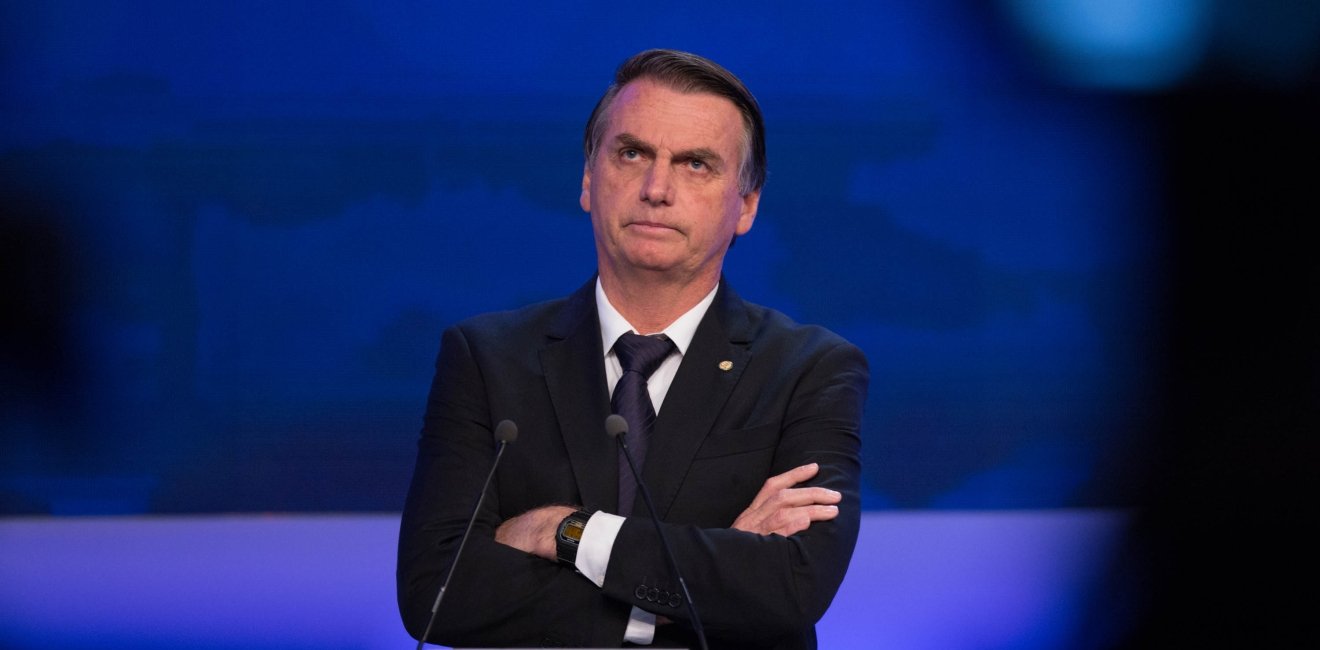An electoral tsunami puts untested, ultraconservative Jair Bolsonaro closer to the presidency. Further congressional fragmentation makes it uncertain whether outcome will lead to better governance.
The first round election of the October 7 Brazilian presidential and general elections hit traditional forces like a tsunami and set the country on a new and uncertain path. Far right congressman Jair Bolsonaro—a back-bencher for most of his 27 years in the Brazilian Congress and seen until recently as an irrelevant player—received a stunning 46 percent of the votes.
Bolsonaro is strongly favored to win the runoff race against former São Paulo Mayor Fernando Haddad, of the Workers’ Party (PT) on October 28, despite high rejection rates, especially among women. Both candidates are expected to moderate their positions to win a majority in the second round election later this month. But a move to the center is riskier for Haddad, as it risks alienating the support of his leftist party base if he tries too hard to attract moderate voters.
Riding a powerful anti-establishment wave, as well as deep frustration with rising crime and widespread corruption, the former army captain imposed a humiliating defeat on traditional political forces such as the Social Democratic Party (PSDB) of former President Fernando Henrique Cardoso and the PT, whose founder — former President Luiz Inácio Lula da Silva, Brazil’s most popular leader only a decade ago — is now in prison serving a twelve-year sentence for corruption.
The Bolsonaro tsunami ended the careers of dozens of establishment politicians, among them former president Dilma Rousseff, who was impeached in 2016 and failed in her bid to return to the political stage as a senator from her home state of Minas Gerais. The state’s Governor Fernando Pimentel (PT) finished third in his attempt to get reelected. Former Governor of São Paulo Geraldo Alckmin (PSDB), finished a distant fourth in the presidential race. The Brazilian Democratic Movement (PMDB) of discredited President Michel Temer lost 22 seats in the House and six in the Senate (although it remains the largest party in the Senate). Some of these newly jobless politicians will now face pending corruption charges without the protection of parliamentary immunity.
Bolsonaro’s miniscule Social Liberty Party (PSL) saw its congressional delegation swell from six to 52 members in the Chamber of Deputies — an enormous increase — and it is now second only to the PT’s delegation, which managed to elect 56 representatives thanks to its well-rooted political machine but lost influence in the Senate and state governorships. The election of newcomers to 53 percent of the 513 seats in the Lower House, including candidates from pro-political reform movements such as Renova Brazil, was well above the average turnover of 40 percent and underscored voters’ demands for change. Political renewal in the Senate hit a new record: only eight senators were reelected for the 57 seats in play on Sunday.
However, it remains to be seen whether these results will lead to effective political realignment and better governance. “A majority of the Lower House will be composed of legislators who want pork and patronage from the next president,” observed Christopher Garman of the Eurasia Group. One of the first problems the winning candidate will face is building a governing coalition in a Congress that is even more fragmented than the one it will replace. When Congress reconvenes in early 2019 there will be 30 parties represented in the House and 21 in the Senate, compared the current 21 and 15 parties, respectively.
Bolsonaro may face additional governance challenges from within his own ticket: his running mate, former General Hamilton Mourão, has made a number of highly controversial statements, including that the 1988 Brazilian Constitution was a mistake and should be rewritten with the support of the armed forces. Moreover, it is unclear that Bolsonaro possesses the temperament necessary to deal effectively with Congress—in his 27 years as a Federal Deputy, he only presented two pieces of legislation that became law.
Bolsonaro’s candidacy was certainly helped by the sympathy generated by his stabbing during a campaign rally on September 6th. The incident landed the candidate in a hospital bed for three weeks and forced his adversaries to tone down their criticism of the former army captain and his extreme views on torture, rape, homosexuality, and race. Doctor’s orders also spared Bolsonaro from having to participate in the debates or explain his recently acquired views on the virtues of opening the Brazilian economy after decades supporting statist policies that makes Brazil the world’s most closed and least competitive among the middle income countries.
The congressman said repeatedly in recent months that he “knows nothing about the economy” and would rely on the advice of economist Paulo Guedes. A University of Chicago trained liberal economist, Guedes favors a radical program that includes the privatization of state companies and lowering barriers to trade and business activities. This message was well received by financial market and created its own momentum. However, Bolsonaro is now recovered enough to resume campaign activities, and the candidate and his policies could come under greater scrutiny over the next three weeks.
Investors nonetheless greeted Sunday’s election results with enthusiasm: Ibovespa jumped and the Brazilian real gained value on Monday. At the same, the result raised expectations to impossibly high levels regarding the potential for opening the economy and pension reforms to reduce the growing public sector debt, which is as necessary as it is unpopular. The precarious situation is made more difficult by Bolsonaro’s unproven ability to pick a competent executive team and to manage a large and diverse coalition of parties with often divergent parochial interests. Bolsonaro may be able to win, but it remains to be seen if he will be able to effectively govern a divided Brazil.







